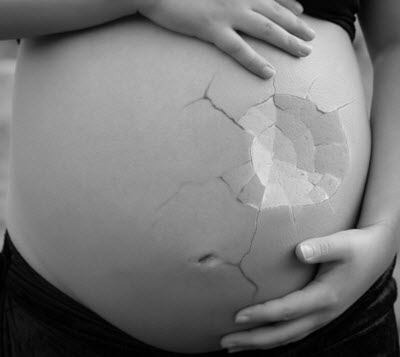Contents
Antenatal Depression is a broad spectrum depressive mood anxiety condition that pertains specifically to; the thoughts and feelings of the expectant mother about herself, or her pregnancy. Antenatal Depression or also known as Prenatal Depression is classified as a form of clinical depression affecting a mother during the term of her pregnancy.
Signs of Antenatal Depression
- Lack of interest or energy

- Feelings of resentment or anger towards others without due cause
- Noticeable changes in sleep patterns; either sleeping too much, or too little
- Feeling empty or numb- sometimes being described as feeling nothing at all
- Loss of confidence, feeling of helplessness, or worthlessness
- Weight gain or loss associated with irregular eating patterns
- Lack of concentration or the ability to make clear decisions
- Inability to cope with everyday life happenings; due to feelings of isolation or disconnection from others
- Thoughts of harming yourself the baby or other children
Depression is one of the most common mental health conditions that can affect you at any time in life, but the likelihood increases substantially during pregnancy. One in ten mothers will experience some form of depression during their pregnancy.
If feelings of ongoing sadness, anxiety, or a loss of interest in the pleasures of everyday life continue for extended amounts of time, you are most likely suffering from depression. As a mother, Antenatal Depression is very common especially in first time mother’s, and feels much like general heightened anxiety.
Feelings of anxiety and hopelessness in new mothers happen frequently, and are a very uncomfortable set of mixed feelings. The good news is that there are safe and effective treatments that can both treat, and manage both conditions at the same time.
Treatment of Antenatal Depression
There are two specific types of treatment for this depression; psychological and medical.
Psychological treatments
- Cognitive behavior therapy (CBT)
- Interpersonal Psychotherapy (IPT)
Medical Treatments
- Antidepressant Medications
- Electroconvulsive therapy (ECT)
 Cognitive behavior therapy (CBT) can help you identify the negative thinking processes that affect your mood and behavior. This therapy focuses on taking the negative predisposition a mother might have and replacing it with more positive forms of thinking. For instance, if you have a habit of avoidance due to negative thoughts or feelings your medical therapist would have you focus on confronting avoidance issues head on, and in a positive manner.
Cognitive behavior therapy (CBT) can help you identify the negative thinking processes that affect your mood and behavior. This therapy focuses on taking the negative predisposition a mother might have and replacing it with more positive forms of thinking. For instance, if you have a habit of avoidance due to negative thoughts or feelings your medical therapist would have you focus on confronting avoidance issues head on, and in a positive manner.
Interpersonal Psychotherapy (IPT) is a form of psychotherapy that focuses on your past in references to anxiety triggers or bad memories. Most of the time in this therapy your mental health professional will ask you to keep a journal of stress triggers or of past memories that might be particularly be disturbing you. As depression can be associated with loss or inability to manage conflict keeping a journal and becoming more self aware and accepting can help you cope.
Antidepressant Medications is a form of medical treatment used when psychological treatments may have not been productive in recovery. Antidepressants can ultimately help you manage your symptoms of depression so you can put your time and resources into recovery, and get back to your old self. There are many antidepressant medications that are safe for the baby, so you are able to take them even during your pregnancy term and after childbirth.
Electroconvulsive therapy (ECT) is a form of medical treatment used in severe cases of depression where antidepressants and psychotherapy were unsuccessful. ECT uses electromagnetic currents passed through to the brain in hopes to reset, or rewire your brain; this treatment is usually practiced as a last resort, or if there have been reoccurring suicide attempts due to severe depression. This treatment being very rare can only be provided by a prenatal psychiatrist who will generally confer alongside with your obstetrician. The risks of ECT being harmful to the mother and baby are relatively low, and have proven to be effective when all other treatments have failed.
This article was last updated on: July 12, 2018
